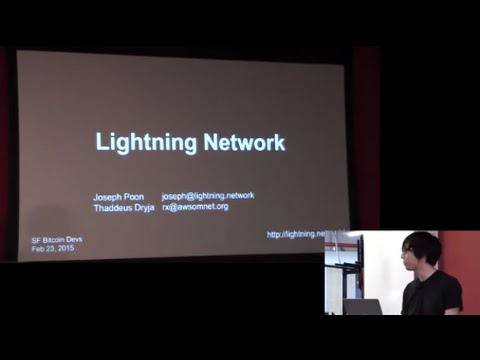At the beginning of this week (on 28th March 2015, to be precise), Brian
Forde, who is the director of Digital Currency Initiative (DCI) at MIT
Media Lab, announced that they have raised $900,000 Bitcoin Developer
Fund from several companies and individuals. This money is planned to
pay for projects that will improve the core Bitcoin protocol.
===
Now, let’s take a step back and draw some backdrop first.
Bitcoin has no governance structure. It has no office that hires and
fires its core developers. It can be considered to be decentralized in
almost every aspect.
Nevertheless, the people who work on its code, a responsibility that is
not assigned to anyone, in particular, need to be compensated for their
time, skill and effort for them to give their best.
That void has largely been filled by voluntary contributions by
companies and individuals who use the technology in one way or another.
In most part, their support is given to non-profit bodies like Bitcoin
Foundation, CoinCenter and now the DCI.
It is left to companies and individuals to contribute the best way they know
In turn, these Bitcoin non-profit organizations have been remunerating
several of the leading developers involved with the project. It must be
mentioned that this arrangement has been far from being perfect. For
instance Bitcoin Foundation has almost ceased playing the role of
caretaker of the Bitcoin protocol development.
Giving donations to these organizations is not the only way the
companies contribute to the codework, though. A few of them like
Blockstream, a Montreal-based startup that builds blockchain
application, have gone a step further and put some of the core
developers on their payrolls.
This arrangement has, however, turned out to be very controversial in
the last few months. As a matter of fact, this has been seen by some in
the Bitcoin community as part of the fuel that drives the existing
divide over the issue of Bitcoin block size scaling.
In the battle to shape the future of Bitcoin, in one corner is a camp
lead by developers who work under Blockstream. They include the likes of
Adam Back, Ph.D., Matt Corallo, Gregory Maxwell and Pieter Wuille, Ph.D.
They are pushing for the adoption of Bitcoin Core, one version of the
core Bitcoin software that will scale, as well as the Segregated
Witness (SegWit) solution.
The fact that Blockstream is working on commercial blockchain products,
such as Sidechain and Liquid, which are seen as competitors to the
scaling of the block size, makes quite a few people uneasy.
Choosing a path of nonpartisan could be the way to go for sponsors

In the other corner is a camp that that includes Gavin Andresen, who, as
indicated above, is linked to the research laboratory at the
Massachusetts Institute of Technology (MIT Media Labs) through the
Digital Currency Initiative (DCI), and other core developers. This group
wants to see Bitcoin Classic
It is on this backdrop that DCI has announced that it has raised
$900,000 Bitcoin Developer fund from the likes of BitFury, Bitmain,
Chain, Circle and Reid Hoffman (to mention just but a few of them).
This amount, according to the article by Brian Forde published on Medium
will go into paying salaries of Gavin Andresen, Wladimir van der Laan,
and Cory Fields as well as covering other logistic costs involved in
their work.
The three lead Bitcoin developers joined the DCI a week after it was
launched in April 2015. Brian has explained that while they are working
with these three as of now and expect other universities to take in
other developers, they cannot rule out working with more people.
“We’re open to supporting another Bitcoin developer if there is a real
demonstrated need,” he has stated
And perhaps to preempt concerns from the members of bitcoin community
especially regarding differences in opinion about scaling, Brian made it
clear that the money will not be used to drive any partisan agenda.
“To be clear, the DCI’s goal is to support diversity of thought in the
Bitcoin space,” reads part of the article, “The establishment of this
fund enables us to offer positions in a neutral academic environment.”
More institutions of learning hosting bitcoin means a better technology
And the idea that MIT provides a neutral environment for carrying out
research and innovation on Bitcoin stood out throughout the article.
This indeed raises a question, which could be fundamental, as to whether
higher institutions of learning such as MIT are best placed to host
Bitcoin core development projects.
Probably the reasoning behind this argument is that researchers in such
an environment won’t be beholden primarily to the whims of partisan
commercial interests. Thus, they will develop solutions that are good
for the wider Bitcoin ecosystem.
Indeed, DCI is the first major Bitcoin initiative to be undertaken by a
major institution of learning. It was launched in April 2015 and almost
immediately of the Digital Currency Initiative (DCI) to gather for the
growing research and development need in the world of cryptocurrencies.
“The goal of this initiative,” the introducing post in April 2015 reads,
“is to bring together global experts in areas ranging from cryptography,
to economics, to privacy, to distributed systems, to take on this
important new area of research.”
In the recent article, Brian has said that it is their dream that more
universities will take the cue and accommodates research and innovation
around cryptocurrencies in their campuses. “We also encourage other
universities to house developers so as to not centralize their
employment at any one institution,” he explained.
The question that remains however is whether the environment of higher
institutions of learning does change much given that funding for Bitcoin
projects will have to continue coming from enterprises within the space.
That is yet to be tested, and perhaps the community will get answers
after a few years of DCI being in operation.
Images courtesy of
Wikimedia
and YouTube